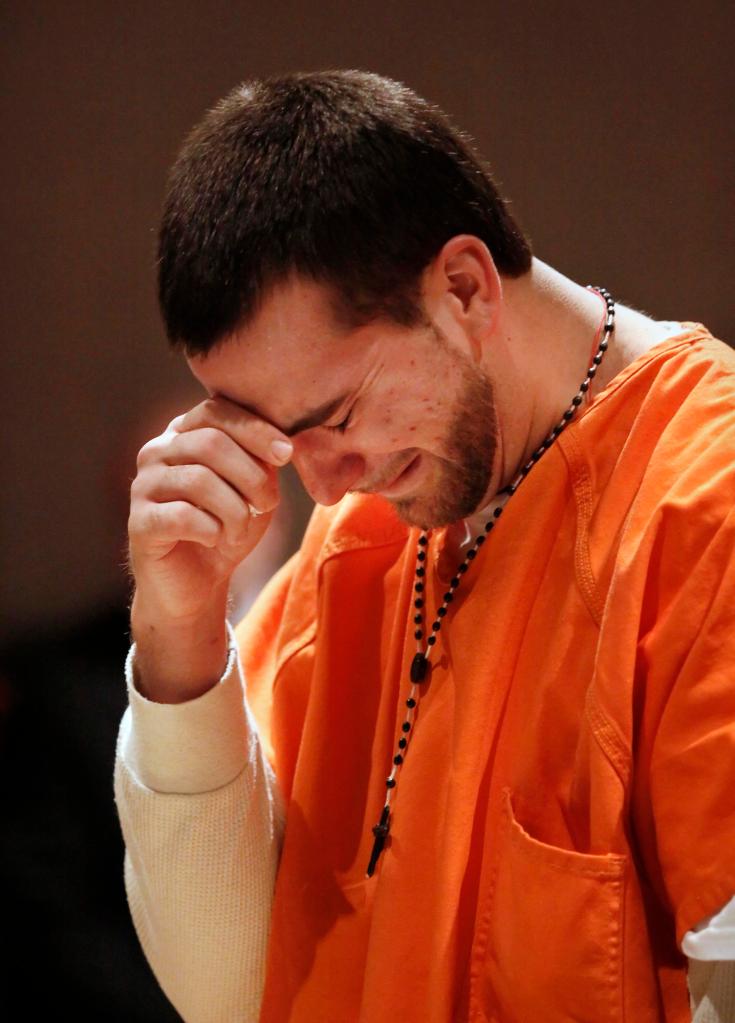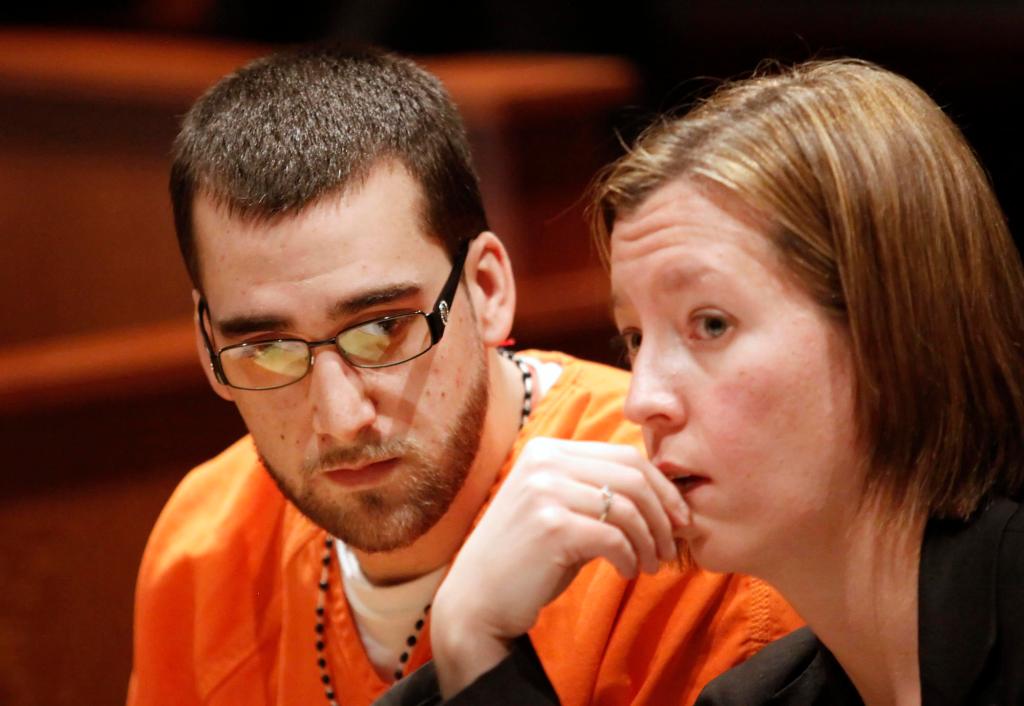PORTLAND – In a quiet, packed courtroom Monday afternoon, 23-year-old Brandon Brown stood and accepted responsibility for shooting another man outside a nightclub in Portland two years ago.
Brown wept and apologized to his father, stepmother, siblings and friends.
But the one person he wanted to apologize to the most — the person whose face he sees in his mind every morning and every night — wasn’t there to watch Justice Thomas Warren sentence Brown to 17 years in prison.
James Sanders, a former Marine who served as a sniper in Iraq and Afghanistan, is living in Atlanta now, adjusting to his new life in a wheelchair.
Sanders was paralyzed from the waist down when Brown shot him with a .357-caliber handgun just after midnight on June 24, 2008. A jury in November convicted Brown of attempted murder and elevated aggravated assault.
Sanders, 29, told the prosecutor that he would not be attending Brown’s sentencing Monday because he did not want to spend any more time looking back.
Brown said he prays Sanders will one day forgive him.
”I wish I could have looked them in the eyes” and apologized to them in person, Brown said of Sanders and his family members. ”Maybe they would have seen a glimpse of the real me, not the coward who got scared and pulled the trigger.”
Brown said he is not the hateful, violent man that some have made him out to be. He described himself as a vulnerable, sensitive young man whose actions on the night of the shooting were completely out of character.
”I made a series of ignorant mistakes out of fear,” Brown said, standing at the defense table next to his lawyer, Sarah Churchill.
”I refuse to hide from blame for my actions. Whatever my consequences will be I will accept them and move on,” he said. ”I am ultimately responsible for what happened.”
The overall sentence imposed by Warren was 27 years, but the judge suspended 10 years. Brown will be on probation for four years after his release, during which he must perform 300 hours of community service, and must also pay $10,000 toward work on Sanders’ home and vehicle, to make them handicap-accessible.
In 2008, Sanders worked as a bouncer at the Platinum Plus strip club in Portland. A few months before the shooting, Sanders threw Brown out of the club after an altercation between Brown and another patron.
The prosecutor, Deputy District Attorney Meg Elam, told the jury at Brown’s trial that Brown held a grudge from the incident, and on the night of the shooting he saw an opportunity for revenge.
One of Brown’s friends testified that Brown told her on multiple occasions that he would get revenge against Sanders, and that he wanted to shoot him.
On the stand, Brown denied ever saying that. He told the jury that he didn’t like Sanders and was angry about the force that the bouncer used in tossing him from Platinum Plus, but that he didn’t hold a grudge.
On the night of June 23, 2008, Brown and Sanders were each hanging out with friends at the Cactus Club on Fore Street. At the time, Brown lived in an apartment upstairs from the club.
Brown testified that he had seen Sanders’ friends in several fights in the Old Port, and he was already nervous around Sanders, so he went up to his apartment and put one of his handguns into his waistband. He then went back down to Fore Street to wait for a pizza to be delivered.
Just after midnight, two people were arguing nearby. According to Brown, that was when Sanders threw a punch at him, picked him up and slammed him on the street. He said he was pinned there and was punched and kicked by at least two people.
After someone pulled Sanders off, Brown stood up and took a few steps back. He said he saw Sanders reach for a knife that was on the street. Brown said he drew his gun and fired because he feared for his own life.
Sanders testified that he never possessed, saw or reached for any knife that night. He told the jury that he was trying to break up an argument outside the Cactus Club when Brown jumped into the fray. Sanders admitted that he tackled Brown to the ground, but he said he never punched or kicked Brown. Other witnesses backed up his story.
Sanders recalled being pulled off Brown. He said he was about eight or 10 feet away when Brown fired the gun, hitting him in the chest. Doctors at Maine Medical Center were not sure if he would survive.
On Monday, Churchill asked for an eight-year prison sentence, citing Brown’s youth, work history, family support and minimal criminal history. Several people spoke on Brown’s behalf at the sentencing, and nearly 50 people submitted letters supporting Brown to Judge Warren.
Those supporters urged the judge to look at the aspects of Brown that were not seen during the trial — the person who comforted his sister during a break-up, wrote poems for his parents at Christmas and took in a friend who had no money and no place to live.
”Nobody has told Brandon’s story,” said his father, Mark Brown. ”Brandon is a good person and has been a good person his entire life.”
The prosecutor, Elam, said Brown had sides of his personality that might not have been known to others. Elam said Brown had been convicted of criminal mischief, furnishing a place for minors to consume liquor, and two misdemeanor drug charges, and he owed nearly $4,000 in fines before the shooting. Instead of paying the courts, Brown spent more than $1,000 on four guns, including one with a laser sight, which was used to shoot Sanders, Elam said. She asked Warren to impose a 22-year sentence.
”It is really but for the grace of God, the physical strength of James Sanders and the proximity to a hospital that Mr. Brown isn’t here today being sentenced for murder,” Elam said.
”James Sanders will never in his entire life fully recover from the physical effects of what Brandon Brown did to him that night.”
Staff Writer Trevor Maxwell can be contacted at 791-6451 or at: tmaxwell@pressherald.com
Send questions/comments to the editors.




Comments are no longer available on this story